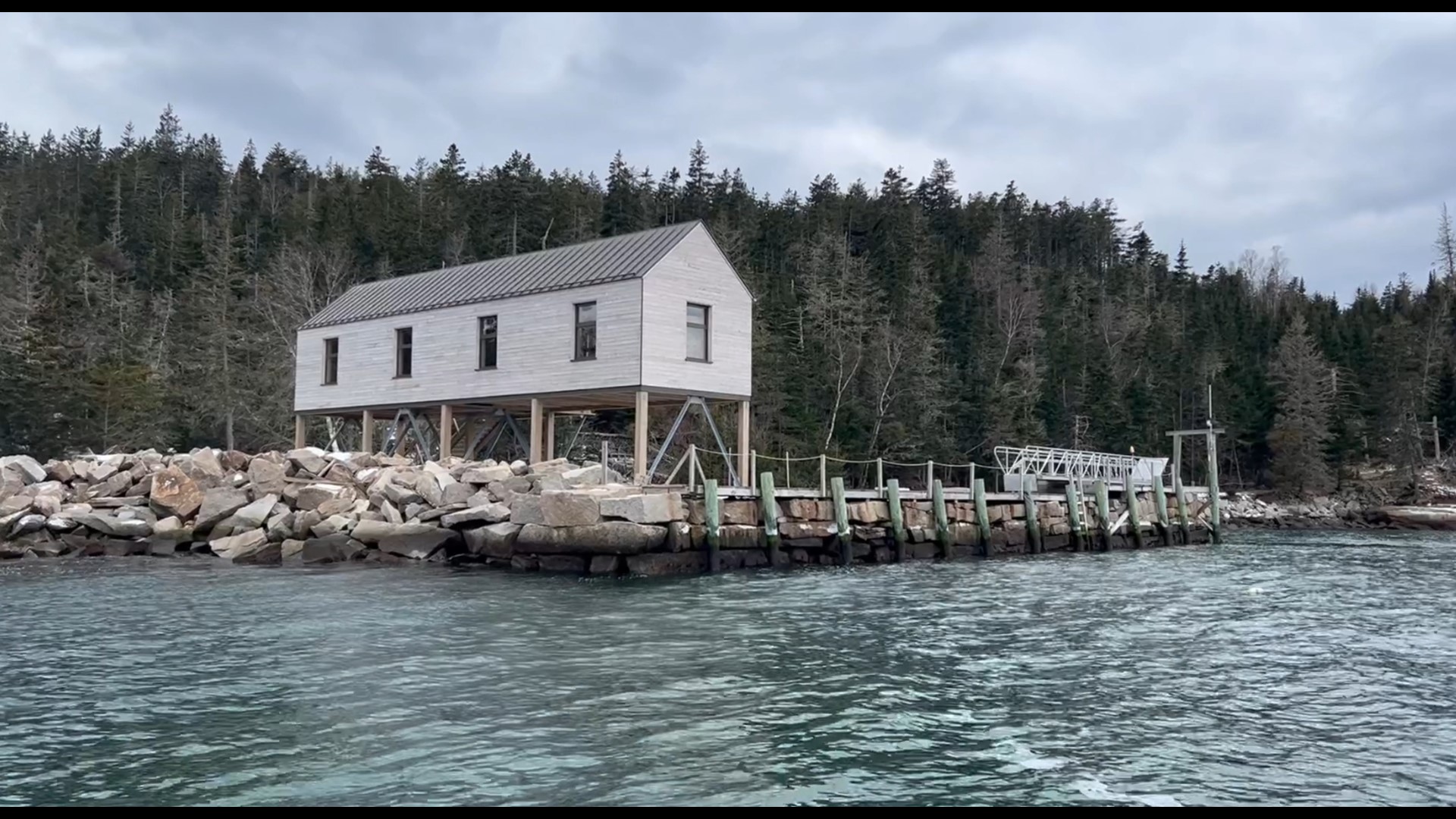ROCKLAND, Maine — As sea levels rise and severe storms are becoming more frequent, one nonprofit based on Maine's coast is thinking about new ways to become more flood resilient.
The Hurricane Island Center for Science and Leadership operates on an energy-independent island about 12 miles off the coast of Rockland, where its newest marine field research station withstood the recent record-breaking storms with ease.
“The building itself is perfect. You know, it looks just like it looked like when we left," Bo Hoppin, the nonprofit's executive director, said during his first visit back to the island since back-to-back storms this month.
The building sits on piers 11 feet above the level FEMA anticipates will be the island's average high tide for storms moving forward, he said. Hoppin estimates water levels reached 4 feet past the base of the piers during the latest storm.
The structure mitigates storm damage in the face of climate change, but its passive house design is also a sustainable, innovative way to combat the changing climate. The materials used to create the structure leave a carbon-negative footprint, meaning they store more carbon than what was used to construct them.
"Think about this building is kind of like an audacious concept," Tim Lock, the architect and managing partner of OPAL, said. "It's trying to pull all that off while simultaneously dealing with these flood conditions that we see exacerbated more and more every year."
The structure is built out of panels prefabricated off-site, with cross-laminated timber and wood fiber insulation, Lock said.
"It’s a whole new way of thinking about the design of coastal buildings that really is something that’s kind of just starting in architecture and design. Hopefully, this can become like one of those early prototypes that people can start thinking about," Lock said.
While the field research station was left untouched, other areas of the island were damaged by the force of the tides, like a wrecked pier Hoppin said they just fixed after a storm last year. Many coastal communities, like Wells and Camp Ellis, are facing the same trend of continuous cleanup year after year.
"We need real-life solutions to the climate crisis. We need to figure out strategies to reduce carbon output in the atmosphere. We're going to need to design our buildings and not just along the shoreline but even inland, in the face of bigger storms," Hoppin said.
The field research station will be the center for the organization's aquaculture programs and field research work.

